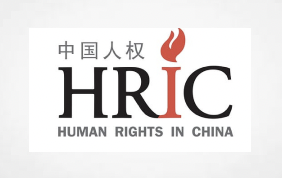In light of the recent case of Xiaolei Wu, HRIC makes this statement to stand in solidarity with Chinese human rights defenders who face numerous dangers, threats, and challenges while advocating for human rights and fundamental freedoms, even outside of China. On January 25, 2024, 25-year old Wu, who is a People’s Republic of China (PRC) national and Berklee College of Music student, was convicted of cyberstalking, stalking, and interstate transmissions of threatening communication (i.e., making threats) in relation to an activist “Zooey,” who had posted fliers around the Berklee College of Music in Boston supporting democracy in China. It is unclear if Wu had been acting under the direction of the Party or others.
According to a United States Department of Justice press release[1] and media reports[2], in late October, 2022, Wu came across Zooey’s Instagram post of a flier she had placed that read, in part, “We want freedom…stand with Chinese people.” He then launched a campaign to harass and stalk her. He made a series of communications via WeChat, email and Instagram directed towards Zooey with messages such as “Post more, I will chop your bastard hands off.” He also told Zooey that he had informed the Chinese public security agency about her actions and that the public security agency in China would “greet” her family. Additionally, Wu solicited others to find out where she was living and publicly posted the her email address in the hopes that others would abuse her online. He then reported Zooey’s information back to a member of the Chinese government.
HRIC’s Executive Director Fengsuo Zhou has experience working with many student activists who have tragically faced similar situations. “Unfortunately, it is very common for Chinese students who support democracy in China to face this kind of harassment and physical threats. There are students who jump on any opportunity to defend the CCP’s propaganda against any activism efforts by pro-democracy students. This has been going on for decades on dozens of college campuses. Fortunately, law enforcement took action in this case, but we must not forget that this is just one case of many. We must note that many of those threatened are not willing to fight back or seek assistance from law enforcement because their families are being held hostage back in China.”
HRIC strongly condemns such illegal and hateful behavior that restricts the ability of courageous human rights defenders to exercise their right to freedom of expression, both online and offline, even beyond the confines of Chinese soil. Most importantly, it creates the fear of reprisals, especially amongst those who are already in exile or have been persecuted by the authorities. In particular, Wu’s actions behind the cloak of anonymity on the Internet, are indicative of the increasing dangers Chinese human rights defenders face online as they engage in social media and other platforms. Even outside of China, the Chinese Communist Party’s campaign of digital authoritarianism include tools of online repression to surveil, censor, attack, and harass Chinese human rights defenders.[3]
Overall, this is a very needed and much welcome move by law enforcement. But in the United States as a whole, there are many institutions that have not lived up to their mandate to protect freedom of speech and association when it comes to pro-democracy Chinese students. The target, Zooey, desperately tried to seek help first from her university, the Berklee College of Music, but the administration refused to provide any assistance, leaving her afraid and disheartened. This failure to act only added to the pressure on Chinese student activists. Even after Zooey’s friends held a rally on campus to bring attention to her case, the university did nothing to address their concerns. Unfortunately, this has been the norm for U.S. universities. The willful decision of universities to ignore the suffering of the Chinese students who are targets of such retaliation and threats is unacceptable. We are thankful that justice was carried out in Zooey’s case, and hope that this example will have the desired effect of providing some much-needed protection for pro-democracy Chinese students. But while this is a step in the right direction, it is one small part of an ongoing fight.
Finally, we emphasize that the same rights must apply online and offline, in particular freedom of expression, which is applicable regardless of frontiers and through any media of one’s choice, in accordance with Article 19 of the Universal Declaration of Human Rights and of the International Covenant on Civil and Political Rights.[4] We urge the United Nations, members of the international community, and concerned stakeholders to continue paying close attention to the issue of reprisals amongst Chinese human rights defenders, amidst the worsening situation of rights regression within and outside of China alike.
Sources
1] https://www.justice.gov/opa/
[2] https://www.reuters.com/world/
[3] Xiao Qiang, “China’s Role in Global Digital Repression,” Global Policy Journal, March 28, 2023, https://www.
[4] https://ap.ohchr.org/




